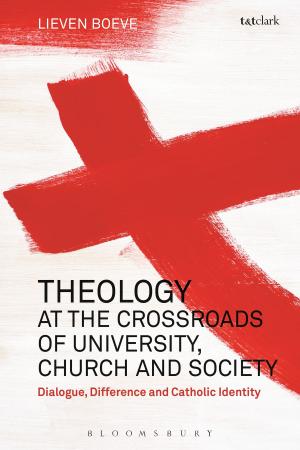The Friars
The Impact of the Mendicant Orders on Medieval Society
Nonfiction, History, Medieval, Religion & Spirituality| Author: | C.H. Lawrence | ISBN: | 9780857732989 |
| Publisher: | Bloomsbury Publishing | Publication: | October 29, 2013 |
| Imprint: | I.B. Tauris | Language: | English |
| Author: | C.H. Lawrence |
| ISBN: | 9780857732989 |
| Publisher: | Bloomsbury Publishing |
| Publication: | October 29, 2013 |
| Imprint: | I.B. Tauris |
| Language: | English |
The mendicant friars of the Franciscan and Dominican orders played a unique and important role in medieval society. In the early thirteenth century, the Church was being challenged by a confident new secular culture, associated with the growth of towns, the rise of literature and articulate laity, the development of new sciences and the creation of the first universities. The orders of mendicant friars which developed around the charismatic figures of Saint Francis of Assisi (founder of the Franciscan movement) and Saint Dominic of Osma (founder of the Dominican movement) provided a strikingly new response to this challenge. These orders embodied a revolutionary concept: preachers going out into the world to reclaim it for God rather than retiring from the world into enclosed monasteries to do His work.
C.H. Lawrence uncovers the spiritual roots of the mendicants in the evangelical movements of the twelfth century, and in the ideas of apostolic life which shaped the religious experience of their founders. Yet, while fully acknowledging the creative dynamism of Saint Francis and Saint Dominic, he shows how much the movement also owed to the popes. It was their steady protection and patronage that turned the armies of 'holy beggars' into a well-trained force of preachers and confessors, working alongside the secular clergy – those who had not joined a religious order. Lawrence explores the friars' mission to the towns – but shows too how quickly their influence developed beyond that. In an astonishingly short time, the friars were commanding the intellectual heights in education and had also become omnipresent counsellors at the court of kings. They also provided many services to the papacy – as inquisitors, nuncios and ambassadors to the Mongolians rulers of Cathay.
The origins, growth and most importantly the impact of the mendicant movements upon the medieval world are the subject of this book. Lawrence shows that it was the mendicants' ministry above all else that, in meeting the spiritual and intellectual demands of the new age, preserved the loyalty of the great majority of western Christians to the established Church.
The mendicant friars of the Franciscan and Dominican orders played a unique and important role in medieval society. In the early thirteenth century, the Church was being challenged by a confident new secular culture, associated with the growth of towns, the rise of literature and articulate laity, the development of new sciences and the creation of the first universities. The orders of mendicant friars which developed around the charismatic figures of Saint Francis of Assisi (founder of the Franciscan movement) and Saint Dominic of Osma (founder of the Dominican movement) provided a strikingly new response to this challenge. These orders embodied a revolutionary concept: preachers going out into the world to reclaim it for God rather than retiring from the world into enclosed monasteries to do His work.
C.H. Lawrence uncovers the spiritual roots of the mendicants in the evangelical movements of the twelfth century, and in the ideas of apostolic life which shaped the religious experience of their founders. Yet, while fully acknowledging the creative dynamism of Saint Francis and Saint Dominic, he shows how much the movement also owed to the popes. It was their steady protection and patronage that turned the armies of 'holy beggars' into a well-trained force of preachers and confessors, working alongside the secular clergy – those who had not joined a religious order. Lawrence explores the friars' mission to the towns – but shows too how quickly their influence developed beyond that. In an astonishingly short time, the friars were commanding the intellectual heights in education and had also become omnipresent counsellors at the court of kings. They also provided many services to the papacy – as inquisitors, nuncios and ambassadors to the Mongolians rulers of Cathay.
The origins, growth and most importantly the impact of the mendicant movements upon the medieval world are the subject of this book. Lawrence shows that it was the mendicants' ministry above all else that, in meeting the spiritual and intellectual demands of the new age, preserved the loyalty of the great majority of western Christians to the established Church.















